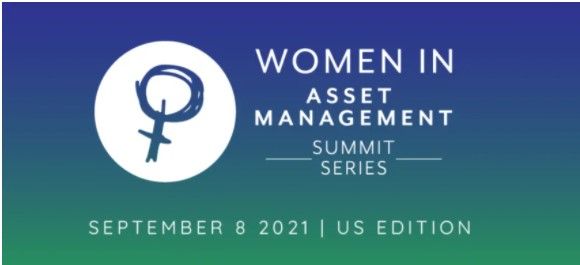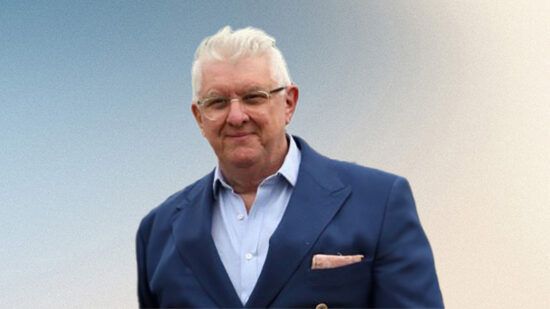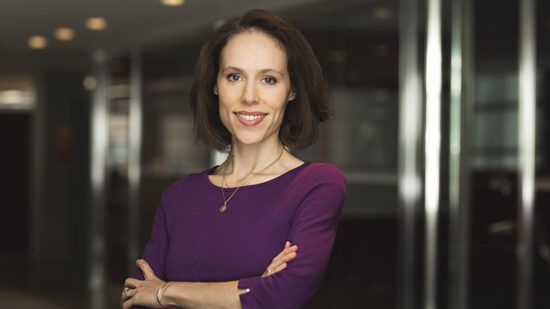Speakers at the Women in Asset Management Summit US Edition held on 8 September discussed the need to draw more diverse candidates into asset management by educating them about the industry and its ability to do good in the world.
The need to “beat the Wall Street stigma” was addressed in the session ‘DEI advocates from a leadership perspective’ moderated by DiversityQ’s editor, Cheryl Cole, featuring panellists Marc Brookman, CEO, North America, Schroders and Maria Dzanis, EVP, head of asset management, EMEA, CEO, Northern Trust Global Investments.
Cole asked the speakers what the “the value of having difference” was in the sector to which Dzanis responded: “We’re seeing assets being transferred to younger generations that value diversity.”
Brookman added “we need to look like our clients,” and, as highlighted above, that we “need to beat the Wall Street stigma” and encourage diverse young people to consider a career in the industry through targeting schools and colleges, and also hiring students “straight out of high school” to teach them on the job.
He also said firms need to be willing to look at candidates that “might not have the exact work experience” and to make use of peoples’ transferable skills by putting some extra time in to get them up to scratch and “get the numbers up” on representation.
See also:- 10,000 Black Interns: ‘It’s not too late to make a difference’
He said that educating people about the industry, including the fact that many firms deploy their capital to do good in the world, will encourage more diverse candidates to apply for roles.
Dzanis said firms that truly embrace diversity show they “are comfortable with having different voices around the table.” This includes, she added, the prospect of people thinking differently and disagreeing with you. She said this also throws up ideas of where challenge sits in a company’s culture where there needs to be a mechanism where these voices are heard, which is inclusion.
The summit brought together delegates from around the world to share their thoughts on diversity and inclusion practices, as well as ESG.
In a fireside chat ‘Assessing the recovery and growth of the Asset Management Industry’, moderated by Liz Skinner, special projects editor, Investment News, the speakers Stacy Swann, CEO & founding partner at Climate Finance Advisors, and Elizabeth Kent, managing director, global public policy at Blackrock talked about the impact of Covid-19 on the industry, where Swann said it accelerated an existing movement towards a “sharper sense of risk” among investors and a focus on sustainable returns and “good ESG investing.” She added that from a climate perspective, “people are starting to roll up their sleeves”, but as a “contribution to overall ESG, the S and the G are just as important in terms of accelerating impact.”
Kent agreed that “climate is only one part of ESG” and that investors should “ignore the S and G part at their peril.” She added that the “D&I aspects of S” such as respecting and supporting colleagues are equally as important as climate when thinking about long-term sustainable outcomes for businesses.
“A lot of diverse voices” are needed in the sustainability drive, Swann added, and that the next generation of investors wants to see a more diverse workforce in the industry. Kent said the Biden administration shouldn’t be given “a pat on the back” for their stance on ESG investing, as this was part of a sea change in the sector that started before his presidency began.
Women as investors
During the a fireside chat ‘Developing your diverse talent to ensure career development’ panellists Catherine Banat, sustainable investing leader and advisor at Diversity Advocate, and Nancy Tengler, CIO at Laffer Tengler Investments shared their thoughts with moderator Lisa VanArsdale, LPL advisor & co-owner of Lakeview Wealth Management.
Tengler said that research showed that women identify as “savers” and view the investment business as a “game they’re uncomfortable with.” Women, she said, tend to defer to their partner in investments, and this is more prevalent among millennials than baby boomers, despite empirical studies showing that women make better investors than men by being more risk-averse and researching more than men.
She also said that studies show that women excel at multitasking, making them better portfolio managers and investors. Banat agreed that women take less risk as investment managers, yet she disagreed with those that say that women take less risk in their careers. She added that most women were given the pioneer jobs in the sector which involved ESG – where on the career side, they “had no choice but to take more risk.”
Compensation has to be tied to diversity measures, added Banat. Tengler said she has a diverse workforce of female leaders from various ethnic backgrounds because she “hires the best people” rather than setting criteria. She also said she worries that “we’re not engaging with getting women to choose this as a career”, such as educating girls in schools.
Remember diversity of thought
During the summit, Heidi Ridley, co-Founder and CEO of Radiant ESG, gave a presentation entitled ‘Is this an opportunity for an asset management rebrand and culture overhaul?’
Ridley said the better the culture, the easier it is to retain diverse talent. Yet, without inclusivity, diversity becomes “a tick boxing exercise” without any of the real benefits of having a diverse workforce.
Ridley said that remote working, where the asset management sector has managed to pivot to effectively during Covid-19 lockdowns, has helped firms remove carbon emissions from working operations. She also said seeing colleagues in their own homes and more vulnerable has made people more accepting of others.
See also:- HSBC AM takes minority stake in Radiant ESG
She also spoke of “blind spots” among colleagues concerning D&I, including diversity of thought where breaking down “groupthink” is key. She added that leaders should “invite dissent” so other people can bring their voices to the table and help move the needle on diversity and inclusion.
Disclosing diversity
During the session called ‘Top 5 ESG metrics to focus on to ensure D&I goals are being kept’, speakers Sarah Bratton Hughes, head of sustainability, North America at Schroders, Emily Chew, executive vice president and chief responsible investment officer at Calvert Research and Management, and Kristin Hull, founder & CEO at Nia Impact Capital discussed diversity practices with moderator Kathryn McDonald, co-founder, head of investments at Radiant ESG.
Bratton Hughes said turnover by “gender and ethnicity” can tell you a lot about a firm. She added that companies should publish their own diversity data “for better or for worse.”
Chew said that moving beyond gender as the prism to assess the diversity of leadership teams was crucial. She also said diversity of age is important, as is culture and skillsets to have a “true diversity of voices at the board level.”
She added that it wasn’t her firm’s preference for “top-down mandated” diversity, as it could end up a tick box exercise. However, she said mandated disclosure of diversity data could be helpful.
A version of this article first appeared on DiversityQ








